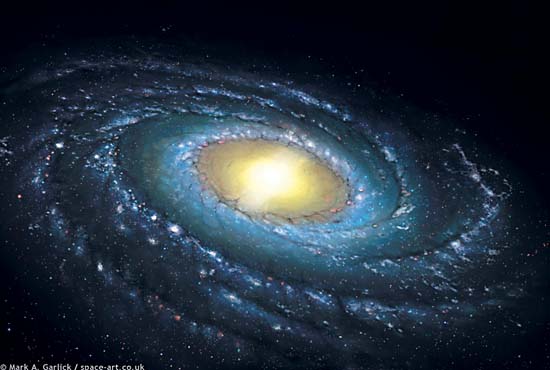There are at least 50 billion planets in the Milky Way
Scientists have for the first time estimated the number of planets in our galaxy and published huge numbers: There are at least 50 billion planets in the Milky Way.

In addition, at least 500 million of the planets in the region are not too hot and not too cold where life can exist. This number is derived from previous results collected by NASA's Kepler telescope.
During the annual meeting of the American Association for the Advancement of Science that took place on February 19 in Washington, said William Borucki, head of data analysis Kepler, scientists have considered the number of planets they broadcast. visible in the first year of search is a small part of the night sky and then makes estimates of the possibility that stars have planets orbiting around.
To date, Kepler has discovered 1,235 planets, of which 54 are in areas where life can exist. The main task of this telescope is not to identify separate worlds but to give astronomers the ability to judge how many planets, especially those with potentials in the ' living area ' , in the Milky Way.
Scientists will use Kepler's scale to cover the 1/400 sky and deduce from it. Borucki and his colleagues calculate that for every two stars there is a star with a planet and one star has a star whose planet is in the " living zone ".
It is only a minimal number because these stars may have more than one planet and Kepler still has not far enough vision to see the planets that lie far away from the star it orbits.
For example, astronomers say that, if the Kepler telescope is 1,000 light-years from Earth and is monitoring our Sun while discovering that Venus is moving by, the chance to see the Earth just 1/8.
To estimate the total number of planets, scientists then used the observed frequency and applied it to the number of stars in the Milky Way.
For years, computational scientists have 100 billion stars in the Milky Way, but last year, a Yale University scientist claimed that this figure was nearly 300 billion.
- 100 billion planets reside in the Milky Way
- 100 billion planets in the Milky Way
- The Milky Way has billions of planets close to Earth
- Two more decades will meet
- Mysterious planets have a 'mother' from another galaxy
- The mass of the Milky Way
- Enjoy the pure Milky Way season
- There are billions of planets like Earth
- Close up of the Milky Way's
- Discovering cosmic dust clusters inside the Milky Way galaxy
- The Milky Way might contain 10 billion Earth-like planets
- Photo of the largest Milky Way galaxy ever
 Van Allen's belt and evidence that the Apollo 11 mission to the Moon was myth
Van Allen's belt and evidence that the Apollo 11 mission to the Moon was myth The levels of civilization in the universe (Kardashev scale)
The levels of civilization in the universe (Kardashev scale) Today Mars, the sun and the Earth are aligned
Today Mars, the sun and the Earth are aligned The Amazon owner announced a secret plan to build a space base for thousands of people
The Amazon owner announced a secret plan to build a space base for thousands of people